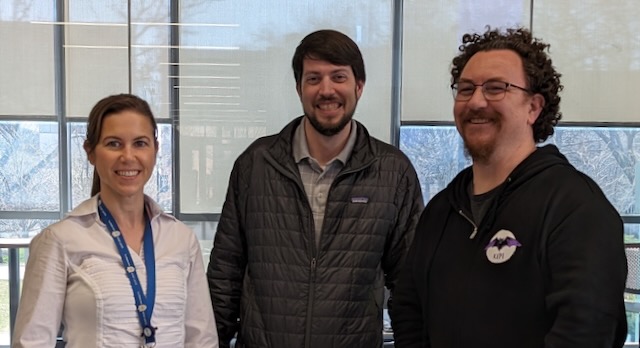Open Source in Service (OSS)
Our experiential learning program has engaged with community service in numerous ways. Two distinct but complementary activities demonstrate how open source principles can amplify social and community impact: a special topics course and a research innovation challenge. Both activities are grounded in the premise that open source software communities and service organizations can learn from each other—open source projects can adopt proven strategies from the charitable sector while non-profits leverage open source methodologies to help community volunteers engage in innovative and effective ways.
Special Topics Course: Open Source and Community Service
This project-based course bridges technology and social impact by pairing computer science students working as developers with local non-profit partners including BWorks, the St. Louis Science Center, and the SLU Transformative Workforce Academy. Students first develop fluency in both domains, learning the operational language and success metrics of non-profit organizations while deepening their understanding of open source development practices. Through conversations with experts like UNESCO's primary open source coordinator, they understand how to articulate technical concepts to social service providers while designing software solutions that address complex community needs sustainably.
Throughout the semester, student teams work directly with non-profit staff to develop meaningful technology solutions for partner organizations. These partnerships require students to navigate privacy considerations, accessibility requirements, and the particular needs of users with varied technology experience, while following structured engagement processes that ensure mutual benefit and sustainable outcomes.
Research Innovation Challenge
The Research Innovation Challenge operates as a semester-long competition where students develop open source software solutions for Raspberry Pi platforms that address authentic needs from active research labs on campus. Unlike traditional hackathons, this extended format allows for thorough needs analysis, iterative development, and production-ready solutions that contribute genuine value to ongoing scholarly work, from sensor networks for environmental monitoring to data collection interfaces for psychology experiments.
The challenge is evaluated by guest judges like Jeff Geerling, a SLU alumnus, author, and open source developer who specializes in infrastructure automation and Raspberry Pi development. Through his educational content and technical expertise, Jeff has built a platform that reaches hundreds of thousands of developers and makers worldwide.

His involvement brings community credibility and potential visibility to student work, while his evaluation criteria emphasize practical utility, documentation quality, and potential for broader community adoption. This combination of research relevance, expert evaluation, and extended development time creates conditions for innovative solutions that often evolve into ongoing research tools or foundations for further development beyond the academic context.